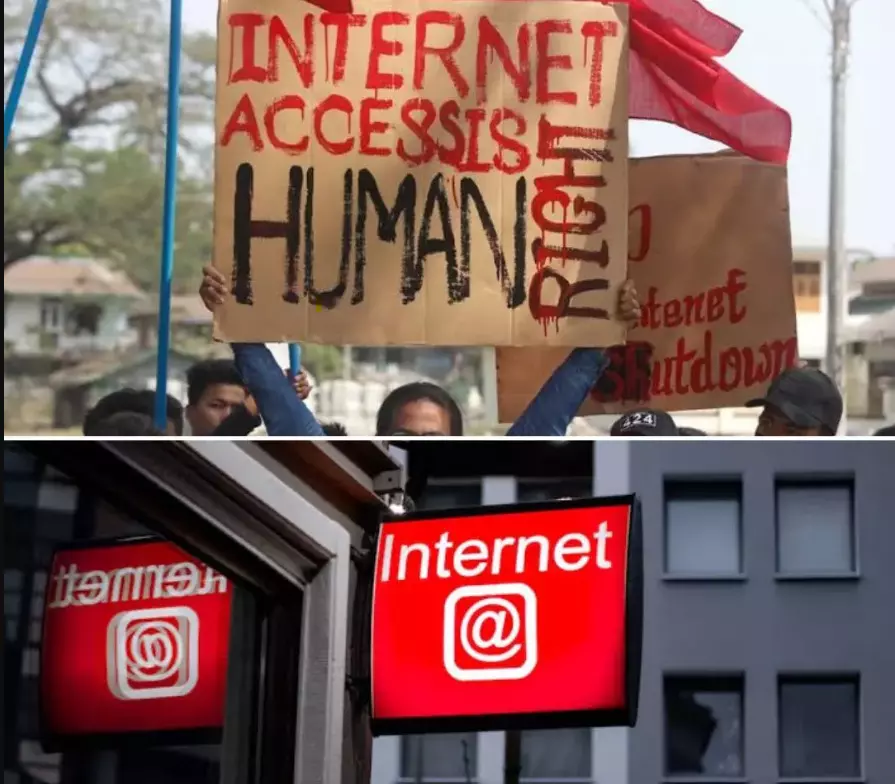Ending an undue silence?

After almost five months since the Internet services were restricted in the conflict-torn Indian state of Manipur on May 3, there is finally some respite as the state government announces the restoration of mobile Internet services. This announcement is met with a collective sigh of relief from a population that has been grappling with unaccounted suffering. The prolonged Internet ban, only second to the over 500-day shutdown in Jammu & Kashmir after the abrogation of Article 370, has taken its toll on the people of Manipur, exacerbating the pain of ethnic clashes between the Kuki and Meitei communities. While the state government claims that the Internet restrictions were necessary to improve law and order, there is no clear evidence to support this assertion. In fact, it is more likely that the ban served to obscure the true intensity of the conflict and shield the government from its perceived failures. Furthermore, it allowed Chief Minister N Biren Singh to retain his chair amidst calls for his resignation. The Manipur Internet shutdown is emblematic of a broader problem plaguing India – the arbitrary use of Internet restrictions. The credibility and efficacy of ever-increasing instances of Internet shutdowns in India remain shrouded in ambiguity. However, certain facts are as clear as daylight. According to the Internet Freedom Foundation, Internet restrictions cost the Indian economy USD 582.8 million in 2021 alone. In 2020, the Indian economy lost an estimated USD 2.8 billion, surpassing any other country by a considerable margin, due to a combined 8,927 hours of Internet shutdowns. Furthermore, the Internet Society estimated that the loss caused by Internet shutdowns in India in 2022 amounted to USD 2.369 billion. These staggering economic losses should serve as a stark reminder of the consequences of Internet restrictions. Yet, the economic impact is only one facet of the problem. The suffering endured by ordinary citizens due to Internet shutdowns is unimaginable and unfathomable. From impeding access to critical health information during a pandemic to disrupting education and financial transactions, Internet shutdowns cast a long shadow over every aspect of life. The advent of the Internet has ushered in a new age, and by banning Internet services for months on end, governments plunge societies into a dark age that should have no place in the 21st century. Internet shutdowns are indeed the greatest paradox to the proudly held concept of Digital India. The issue of Internet shutdowns is not confined to Manipur or Jammu & Kashmir. Over the past five years, India has imposed 423 shutdowns, with 362 of them targeting mobile Internet services. This widespread use of Internet shutdowns has a profound impact on the common masses and highlights the urgent need for an extensive debate and meticulous policy to ensure that Internet restrictions are imposed only in cases where they are truly unavoidable. In a democratic society, the suppression of communication through Internet shutdowns raises serious questions about freedom of expression and the right to access information. The fundamental principle of proportionality should guide any decision to restrict Internet access. While governments do have a responsibility to maintain law and order, such actions must always be proportionate, necessary, and transparent. In Manipur, the restoration of mobile Internet services offers respite to the people who have endured months of isolation and uncertainty. However, it is imperative that the government does not use Internet restrictions as a knee-jerk reaction to crises but instead employs them as a last resort, and only when all other options have been exhausted. The economic losses, the suffering of the people, and the erosion of democratic values caused by Internet shutdowns should serve as a wake-up call for policymakers across India. It is time for a comprehensive review of the guidelines governing Internet restrictions and a commitment to upholding the principles of democracy and digital freedom. Only then can India truly live up to its vision of a Digital India that empowers its citizens and embraces the opportunities of the digital age while safeguarding their rights and liberties.



